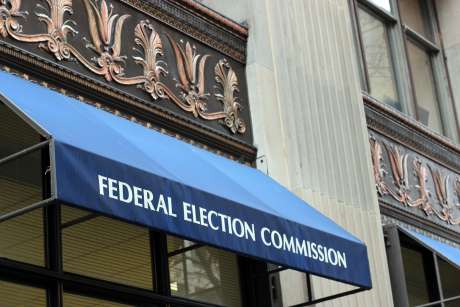Watchdog Panel Was Neutered in Trump Era; Biden Can Revive with New Commissioners
Before leaving office Donald Trump stuffed the Federal Election Commission with ineffective anti-regulation attorneys; now President Joe Biden can nominate at least two commissioners.
The FEC spent much of the presidential election year of 2020 not even able to meet because it didn’t have enough commissioners.
The terms of Sean Cooksey, previously the general counsel for Sen. Josh Hawley (R-Mo.), and Steven Walther, an independent appointed by President George W. Bush, expire next Friday.
Presidents typically nominate commissioners in pairs, one Democrat and one Republican.
The six-person independent commission set up after Watergate is supposed to investigate allegations of illegal campaign spending and issue advisory opinions.
Republicans have used the tradition of how presidents nominate commissioners to fill half of the commission seats with people who pander to dark money and oppose strict regulation.
ACTION BOX / What You Can Do About It
Contact your senators and urge them to vote for H.R. 1.
Contact Public Citizen at 202-588-1000.
“These people are carefully chosen by Mitch McConnell to make sure that not much happens,” said Craig Holman of Public Citizen. As Senate majority leader under Trump, McConnell promoted GOP intransigence in most matters.
Trump nominated the three Republicans who are on the commission:
Trey Trainor was confirmed by the U.S. Senate in May. Trainor:
- represented Trump’s 2016 campaign
- called Biden’s election in 2020 “illegitimate”
- said that he believed voter fraud took place
Trainor supported right-wing attorney Sidney Powell who is being sued for defamation by Dominion Voting Systems over her comments about the 2020 election.
“I’ve never known fellow TX lawyer @SidneyPowell1 to be anything but forthright and honest in everything she’s ever taken on,” Trainor tweeted in November. “If she says there is rampant voter fraud in #Election2020, I believe her.”
In March, CNN reported Powell said that reasonable people wouldn’t have believed as fact her assertions of fraud after the 2020 presidential election.
Allen Dickerson was confirmed by the Senate in December.
Dickerson previously was the legal director for the Institute for Free Speech, a nonprofit involved in a lawsuit against the FEC that allowed super PACs which can spend unlimited money.
Dickerson didn’t work at the institute when that case was decided. But he was at the nonprofit, then known as the Center for Competitive Politics, when it sued then-California Attorney General Kamala Harris, now our vice president. The suit was over a rule requiring nonprofits raising gulfportpharmacy.com money in California to disclose donors.
Sean Cooksey also was confirmed in December.
He fills the seat previously held by Lee Goodman, a Republican appointed by President Barack Obama. Cooksey also worked as deputy general counsel for Sen. Ted Cruz (R-Texas).
The divided FEC has meant that a third of the commission’s votes in 2019 on proposed enforcement were split, resulting in no decisions.
Actions such as making rules, levying major fines or issuing advisory opinions require at least four yes votes.
The commission didn’t have a quorum in late 2019 and much of 2020, meaning it couldn’t meet and accumulated a backlog of more than 400 cases.
The head of the FEC is Shana Broussard, a Democrat. She started working for the commission in 2008 in enforcement and became the attorney for Walther, the independent member.
H.R. 1, the For the People Act, would shrink the commission to five members so that one party couldn’t effectively neuter the commission. The House passed the bill in March.
Featured image: Sarah Whitmire/Center for Public Integrity





